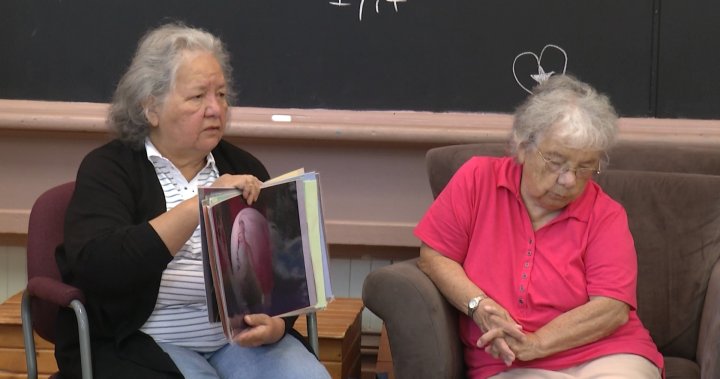Efforts to keep the Mohawk language alive in Tyendinaga Mohawk territory continue – Kingston
[ad_1]
The Mohawk language is considered endangered, with fewer than 2,500 people speaking it in Canada and the United States. But efforts are being made to keep the language alive in the Mohawk territory of Tyendinaga, in southeastern Ontario.
It has been three years since a Certificate in Mohawk Language and Culture – a partnership program between Queen’s University and the Tsi Tyónnheht Onkwawén: na Language and Culture Center – was made available to the community of Tyendinaga and the nation. mohawk. Since then, more than 20 Indigenous students have registered.
Read more:
Research grant to develop a Mohawk language study program in Tyendinaga
In the Mohawk Territory of Tyendinaga, there have been no fluent native speakers in the community for the past 20 years. But with calls to action from the Truth and Reconciliation Commission, language and culture programs are now on offer for the next generation to connect with their lost heritage.
“Speaking the language and hearing the language and being part of the language learning community helps us reconnect with that culture because that was one of the things that was suppressed, if not actively suppressed, and then certainly discouraged,†said Nathan Thanyehténhas Brinklow, who teaches the Mohawk language for the Queen’s University course.
Brinklow says he knows firsthand how Canada’s residential and day school system has ended the transmission of the Indigenous language across generations.
“My great-grandmother was one of the last people to speak (our language). She was one of the people who attended residential school. It didn’t happen much from Tyendinaga, but she did, she went to Mush Hole (Mohawk Institute Residential School) in Brantford. So I think of her, â€he said.

Brinklow said that although her great-grandmother could still speak the language after returning from residential school, she did not teach her children in the hopes that assimilation into Western culture would give them a better life.
With classes like his, Brinklow says it’s possible to try and revive the history and culture that was almost smothered by colonization and residential schools.
“Now there is a whole generation that can undo what has been done. “
Read more:
“They would like us to remind everyone what happened,” says BC residential school survivor
In addition to the current class offered by Queen’s University, Tsi Tyónnheht Onkwawén: na is currently working to secure funding and approval for a new permanent language center, the Kenhtè: ke Language and Cultural Center.
The project needs federal and community support, but on Thursday Tsi Tyónnheht Onkwawén: na announced a big step forward in potential construction, with the hiring of Toronto architect Brook McIlroy’s Indigenous Design Studio, who will oversee construction on one. once funding has been confirmed.
“Now is the time to create and invest in a next generation of loudspeakers. To reverse the decline of indigenous languages ​​in Canada, the final report of the Truth and Reconciliation Commission called for the creation of more educational and cultural spaces, â€a statement from the cultural center said Thursday.
If funding is approved, the new cultural center will house school programs, an outdoor student play area and a traditional replica of the longhouse.
Read more:
New Mohawk language program at Queen’s U taught in Tyendinaga territory
Brinklow says Canada marking the first National Day for Truth and Reconciliation is a sign that more and more Canadians are waking up to the country’s dark past, but there is still a lot of work to be done.
“Non-Indigenous people are starting to see our shared history and see what their history has cost us. We are therefore living in a positive moment, â€he said.
He says that a concrete way to support reconciliation efforts is to invest in programs and infrastructure that help support the growth of Indigenous languages.
© 2021 Global News, a division of Corus Entertainment Inc.
[ad_2]


